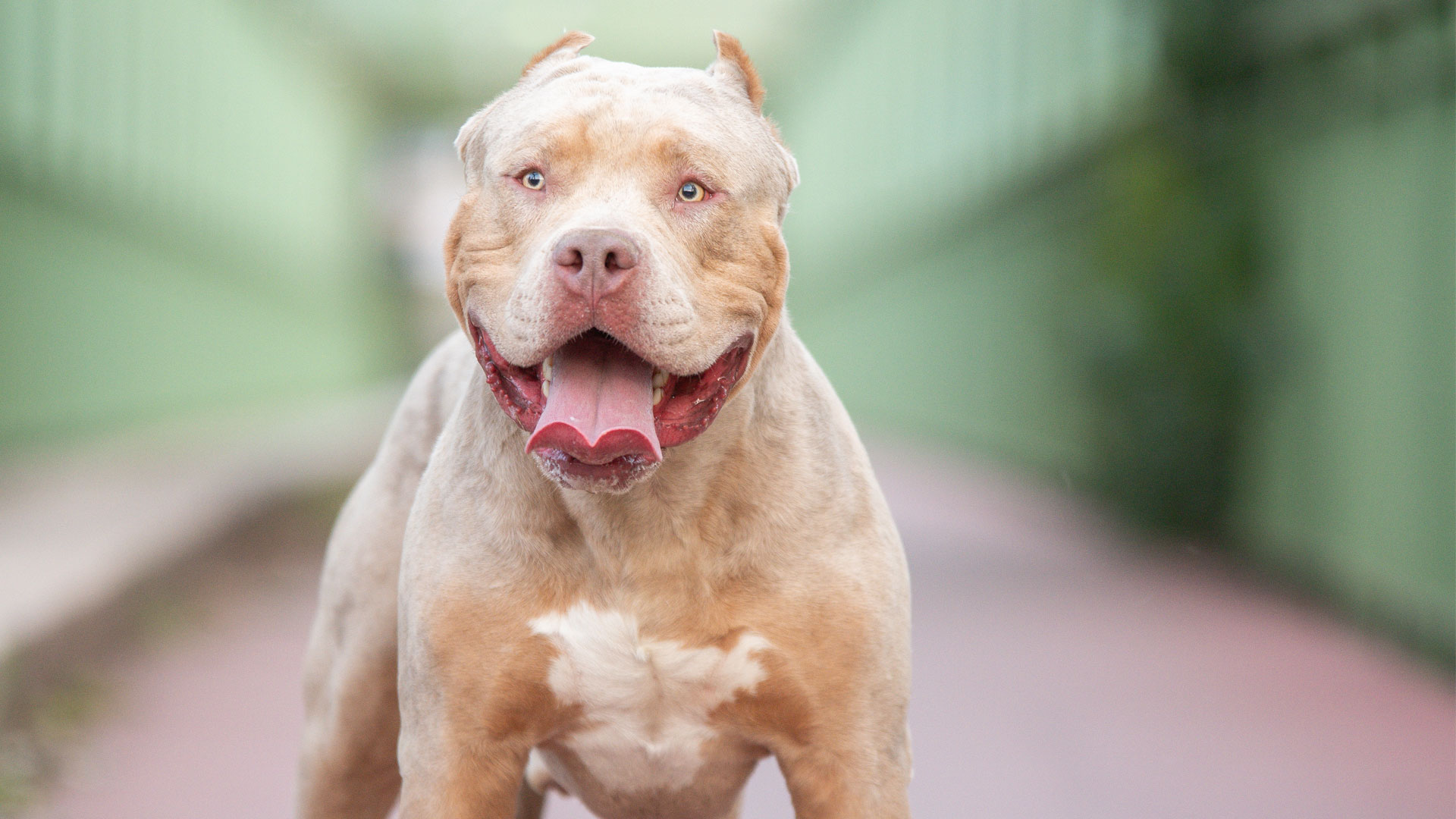Why are XL bullies banned in the UK?
The divisive legislation came into force this month, but here's what it means

Something that’s been in the news a lot in the UK recently is the decision of the government to ban American XL Bully dogs in the country.
People with these dogs are required to muzzle them in public at all times, even if they’re already on one of the best dog leashes, and apply for the government’s exemption scheme by the end of January.
The dogs – the largest category of dogs in the American Bully breed – join the other four breeds banned in the UK per the Dangerous Dogs Act 1991: the Pit Bull Terrier, the Japanese Tosa, the Dogo Argentino, and the Fila Brasileiro.
The XL bully isn’t recognized as a specific breed in the UK, however. Meanwhile, the American Bully Kennel Club and the American Dog Breeders Association both have different definitions too. So, even if a dog wasn’t sold as an XL bully, or if they’re a crossbreed that looks more like an XL bully than another type of dog, but meets certain characteristics as laid out by the government, they may be affected by the ban.
It’s a controversial decision, with many XL bully parents protesting against the ban. But, why are XL bullies being banned in the UK?
What does the ban mean? And why is it happening?
The government says that the ban is to “protect the public from tragic dog attacks.” There are no official statistics on dog attacks by breed, but the government says that there have been 23 deaths caused by dog attacks since the beginning of 2021, with XL bully dogs disproportionately involved.
There have been some high-profile cases of children and adults being killed by XL bully dogs, either their own or somebody else’s.
PetsRadar Newsletter
Get the best advice, tips and top tech for your beloved Pets
Some medical and veterinary experts have explained that the wounds and injuries caused by XL bullies are often worse than those caused by other dogs, due to the dogs’ powerful jaws that grip strongly, and can result in broken bones and nerve damage.
The Dog Control Coalition, a group comprising a number of charities and organizations, has called for an overhaul of the Dangerous Dogs Act, arguing that blanket bans on breeds don’t work, and aren’t fair on responsible owners. It proposes a lessened focus on specific breeds, but tougher penalties on irresponsible owners.
While groups like this one are clear on the government’s new rules, there is a lot of misinformation spreading on social media. Some people mistakenly believe that all XL bully dogs are required to be euthanized, for example, which isn’t the case.
XL bully parents have the option to euthanize their dog, and would receive £200 (around $255) in compensation, but this is just one potential choice. Breeding, selling, advertising, rehoming, abandoning, and allowing an XL bully to stray are now all illegal, and from the beginning of February 2024, ownership of an XL bully dog will become illegal unless the dog parent applies for exemption.
As well as leashing and muzzling XL bullies in public, they must also be neutered and microchipped. If dog parents don’t comply with the new rules, they may be fined and have their dog seized.
Scotland has also announced a ban, along with England and Wales, joining other countries including Ireland, Turkey, and the United Arab Emirates which all have legislation strictly controlling XL bully dogs.
Looking for more dog content? Discover 20 of the best guard dog breeds that also make lovely pets with the right training and support.

Adam is a freelance journalist specialising in pets, music and culture, and mental health and wellbeing. He investigates and writes the large majority of news on PetsRadar, and collaborates with veterinary experts to produce informative pet care content.
Adam has a journalism degree from Southampton Solent University and a masters degree in Magazine Journalism from Cardiff University. He was previously senior editor at dog advice website DogTime.com, and has also written for The Independent, GoodToKnow and Healthline.
He owns two rescue cats, Bunny and Dougie, and has also previously had a rabbit, fish and Roborovski dwarf hamsters.
